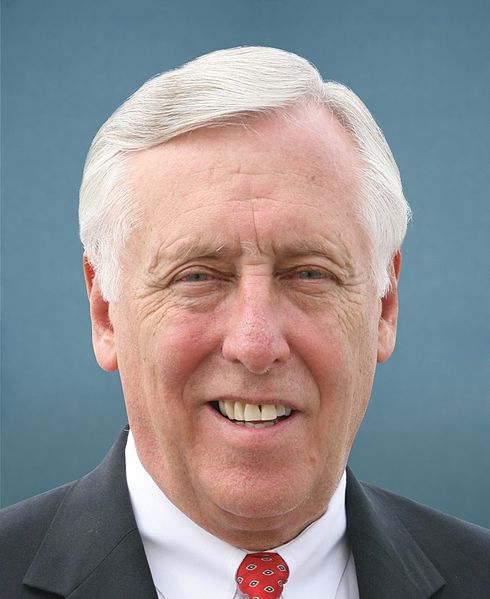Donald Trump barked and Benjamin Netanyahu caved in.
One may be excused for wondering whether Israel is a banana republic, doing the bidding of its master.

Israel’s decision to ban U.S. Democratic congresswomen Rashida Tlaib and Ilhan Omar from entering the Israeli-occupied West Bank on a four-day fact-finding trip to examine the conditions of Palestinians living there was short-sighted and counter-productive.
Israel had decided to allow Tlaib and Omar — the first Muslim women to be elected to the House of Representatives and fierce critics of U.S. President Donald Trump — into the country.
“Out of respect for the U.S. Congress and the great alliance between Israel and America, we would not deny entry to any member of Congress into Israel,” Ron Dermer, the Israeli ambassador to the United States, said last month. According to Israeli Foreign Minister Israel Katz, Dermer neither consulted him nor Israeli Prime Minister Benjamin Netanyahu.

Nevertheless, in an astonishing volte-face, Netanyahu reneged on Dermer’s promise, only hours after Trump warned Israel it would show “great weakness” by permitting the pair to visit.
In justifying the ban, Netanyahu invoked a 2017 law that entitles him to prohibit the entry to visitors deemed to be major figures in BDS, the boycott, divestment and sanctions movement. Netanyahu said that Israel is “open to critics and criticism,” but will not admit visitors whose sole purpose is to endorse anti-Israel boycotts and deny Israel’s legitimacy. The Israeli government claims the BDS movement is antisemitic, a charge its backers deny.
Composed of a loose network of U.S. and international groups, BDS calls for a complete Israeli withdrawal from the West Bank and the Golan Heights, full equality for Israel’s Arab minority of 1.9 million Muslim and Christian Palestinians, and the right of Palestinian refugees to return to their former homes in what is now Israel.
Lauding Netanyahu’s decision, Trump said, “Representatives Omar and Tlaib are the face of the Democratic Party, and they HATE Israel!”
Disengenuously enough, Dermer claimed that Israel’s ban had nothing to do with Trump, and that Israel had not succumbed to his pressure. “We were not pressured by the Trump administration to do this and this is a sovereign decision that Israel has to make,” he said.
In fact, Israel switched course only after Trump intervened. The reason is clear. Netanyahu feels indebted to Trump and does not want to arouse his ire.

Trump has been very supportive of Netanyahu’s right-wing policies. He has moved the U.S. embassy from Tel Aviv to Jerusalem, recognized Israel’s sovereignty over the Golan, abandoned the two-state formula in favor of autonomy for the Palestinians, adopted a mild view of Jewish settlements in the West Bank, closed the Palestine Liberation Organization office in Washington, and cut funding to the United Nations Agency that supports Palestinian refugees throughout the Middle East.
Trump’s intervention in Israel’s internal affairs was not only unseemly but unprecedented. It was the first time a U.S. president had asked a foreign power to act against duly elected members of Congress. And it placed him at odds with Democrats and Republicans, as well as with leading pro-Israel Jewish organizations such as the American Israel Public Affairs Committee and the American Jewish Committee.
One of the most overtly partisan presidents in American history, Trump is shamelessly exploiting the Omar/Tlaib affair to feather his political nest. With the presidential election just 15 months away, Trump seeks to paint the Democrats in anti-Israel and antisemitic hues. It’s an absurd and unfounded accusation, but he calculates, perhaps correctly, that his pro-Israel agenda will induce a greater proportion of American Jews to cast their ballots for the Republicans, who’ve never won more than a one-third share of the Jewish vote.
“Trump’s way of — and motivation for — expressing his affection for Israel is guided by his political desire to improve his re-election chances by depicting the entire Republican Party as pro-Israel and the entire Democratic Party as anti-Israel,” writes The New York Times columnist Thomas Friedman.
As a result, he adds, “Trump — with the knowing help of … Netanyahu — is doing something no American president and Israeli prime minister have done before: They’re making support for Israel a wedge issue in American politics.”

Tlaib and Omar are certainly hostile to Israel. Tlaib, an ethnic Palestinian whose 90-year-old grandmother lives in the West Bank, is a proponent of a binational state, the antithesis of Jewish statehood. Omar, born in Somalia, has made implicitly antisemitic comments in which she has questioned the allegiance of American Jews to the United States and implied that U.S. support for Israel is “all about the Benjamins, baby,” a reference to $100 bank notes.
Favorably disposed to the BDS movement, Omar and Tlaib recently introduced a resolution that affirms the right of U.S. citizens to participate in boycotts as an expression of free speech under the First Amendment. Neither Israel nor the Palestinians are explicitly mentioned in the resolution.
Omar and Tlaib are members of the Democratic Party’s small progressive wing, and their views on Israel and the Arab-Israeli dispute are by no means representative of opinion in its membership or leadership. Indeed, the Democratic Party is solidly pro-Israel, notwithstanding the fact that support for Israel among Democrats has been waning in recent years.
A survey conducted by the Pew Research Center last year showed that 27 percent of Democrats sympathize with Israel, compared to 79 percent of Republicans.
As a result, Trump imagines that the Democratic Party is in the process of abandoning Israel. Nothing could be further from the truth, but he believes that the Republican Party’s position on Israel will prompt more Jews to vote for the Republicans.

Netanyahu, fighting for political survival as the September 17 election approaches, is also playing fast and loose with the electorate. If he had permitted Tlaib and Omar to land in Israel, he may well have incurred the wrath of his base, pushing some of his Likud Party supporters into the arms of the newly established New Right Party, which led by Ayelet Shaked, his former minister of justice.
By aligning himself so closely with the Trump administration, Netanyahu has identified Israel with Trump and the Republican cause and alienated Democrats, thereby eroding bipartisan congressional support for Israel. This would not be in Israel’s interest, of course.

Tellingly enough, House majority leader Steny Hoyer, who led a delegation of Democrats to Israel earlier this month and had previously criticized Tlaib and Omar, publicly urged Netanyahu to change his mind. “The decision of the Israeli government to deny entry to Israel by two members of Congress is outrageous, regardless of their itinerary or their views,” he declared.
House Speaker Nancy Pelosi described Israel’s decision as “a sign of weakness and beneath the dignity of the great State of Israel.” Her colleague, Senator Chuck Schumer, agreed. House Foreign Affairs Committee Chairman Eliot Engel said that Israel had closed itself off to “criticism and dialogue.”

Two senators campaigning to be the Democratic candidate in the 2020 presidential election, Elizabeth Warren and Bernie Sanders, both voiced disappointment. “Israel doesn’t advance its case as a tolerant democracy or unwavering U.S. ally by barring elected members of Congress from visiting because of their political views,” said Warren. Sanders described Israel’s move as “shameful,” “unprecedented” and “a sign of enormous disrespect to … the United States Congress, and to the principles of democracy”
Even staunch Republican supporters of Israel, like House minority leader Kevin McCarthy and Senator Marco Rubio, expressed disagreement with Israel’s ill-advised decision.
In short, the cancellation of Tlaib’s and Omar’s trip raises troubling questions about the viability of the historic ties between Israel and the United States, which have always been based, in large part, on shared interests and values such as free speech and the importance of an open society. If these are cast aside by Israel, the bipartisan nature of its relationship with the United States could well be damaged, if not altogether jeopardized.
